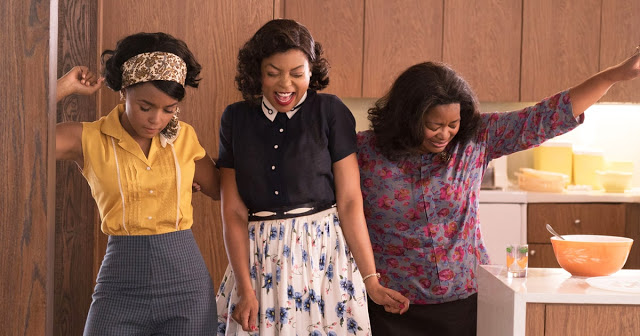Hidden Figures: Black Women Have the Bright Stuff
In the opening scene of Rushmore, a math teacher asks Jason Schwartzman whether he might be able to come to the blackboard and solve an impossibly complex equation. Schwartzman’s character does so effortlessly and receives the adoring congratulations of his classmates, at which point Wes Anderson reveals that the sequence is a dream. Hidden Figures, Theodore Melfi’s sincere and sappy biopic of three black women who worked at NASA during the height of the Space Race, is essentially a feature-length version of this scene, minus the concluding fake-out. It fancies itself a hard-hitting historical drama, but it’s really a frothy, wish-fulfillment fantasy.
And what’s wrong with that? Hidden Figures may not trouble your mind or get under your skin, but it does provide a welcome, feel-good tonic for these troubled times. It insists, with disarming directness, that the evils of prejudice and entrenchment will always succumb to the virtues of hard work and human decency. Its period setting is one of extreme unease (as opposed to now?), but its tone is unabashedly wholesome and reassuring. Read More

